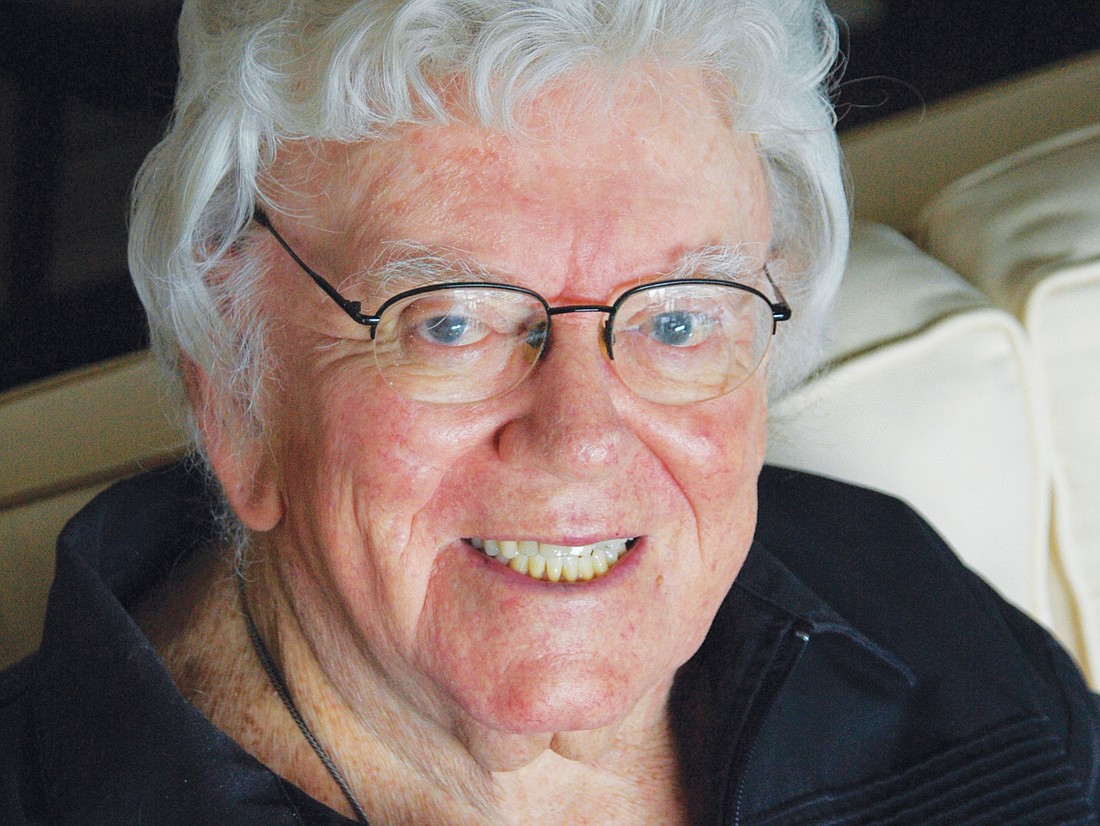- January 17, 2025
-
-
Loading

Loading

Years ago in London, I was chatting in an immaculate kitchen with an old friend I shall call Frohe. Frohe had a Kleenex in her hand. I sat on a stool and sipped her rich coffee.
“Do you have a cold?” I asked.
“No, why?” Frohe responded.
“The Kleenex.’’
“Oh, I’m just putz‘n,’’ Frohe said. “I’m always putz’n —
you know, cleaning things.’’
Frohe reinforced my long-held conceit that heredity is much stronger than some will admit. Frohe is American. Her parents had come to midwest America from Holland. Frohe’s Dutch antipathy to dirt, buried deep in her psyche during those distant, less self-conscious days in Fun City, may have surfaced with Netherlandish zeal. That Frohe might someday reveal herself as a “Putzer cum laude” had remained dormant in my thoughts through the intervening years.
You see, in Europe in the 1950s, I was indoctrinated to believe that the Dutch are so clean that all other people are to them untouchables of a sort.
If cleanliness is next to godliness, people who don’t putz enough have, ergo, fallen from grace. Of course, this is the way the compulsive Putzers of the world want them to feel.
I know. I have been intimidated by Putzers.
In 1956, I lived in baronial bachelor splendor in a penthouse atop an apartment building in Basel, Switzerland.
Having just arrived from New York City, I was conscious of the immaculateness of Switzerland. In the lobby, I remarked to Fräulein Holzkopf, the shapely young Baslerin who was the concierge, that under her eye the whole establishment “glowed like a new penny.”
She mumbled in German something to the effect that, to us un-putzed, slovenly Americans, anywhere away from the United States must seem indeed clean and ordentlich.
“Have you been in the United States, Fräulein?” I asked.
She said something to the effect that she had never ever had the slightest desire to set foot on American soil.
Perhaps feeling that, despite my execrable choice of nationality, she had been excessively inhospitable to me, the pretty Mädchen suddenly added with surprising noblesse oblige.
“While we Swiss are very highly clean, I would tell you for real cleanliness, you must go to Holland,” she said. “There, the housewife is in the morning on her knees scrubbing with a brush the sidewalk before her house. Quite wonderful!”
I glimpsed Fräulein Holzkopf’s trim knees in their sheer nylons and surmised that although she might admire her Dutch sisters, she did not emulate them by putz’n sidewalks.
“That is normal where I come from,” I said softly.
“You mean to scrub the sidewalks?”
“Natürlich!” I said. “The custom started in New York, a Dutch colony ... Peter Stuyvesant and all that. And they are still doing such a thing?’’
“Well,” said Fräulein Holzkopf, smiling a warm Snow White smile with her mouth, while her eyes were blue ice. “Good discipline makes good people. We Swiss are the best example.”
I let that one pass and walked down to the opera house.
A few weeks later in New York, I passed a trick shop at Broadway and 47th. In the window was a remarkable array of repulsive rubber mini-monsters: snakes, enormous spiders, squids, and imaginary creatures that were indescribably horrid. I bought one of the latter, a sickening black and green thing out of a swampy nightmare.
On my return to Basel, I greeted my beautiful concierge, who assured me that I must be “truly glad to be back in clean, beautiful Switzerland, where life is not filthy, and everything is ‘in Ordnung.’”
One morning several days later, up in my snug aerie, I took my rubber monster out of its paper bag. I laid the tentacled creature close to the drain in my spotless bathtub. I spooned a few globs of tomato ketchup on the thing, and made a ketchup-trail right up to the drain hole.
Then I took my “Tosca” score and strolled down to the opera house for rehearsal. When I returned several hours later, Fräulein Holzkopf screamed at me across the lobby.
“Mr. Roney, we do not know what we can say,” she said. “Such a thing has never ever before happened. This is most terrible.”
“What’s wrong?”” I asked.
“You didn’t see it?”
“See what?”
“In your bathtub,” she said. “This thing. It is here on the shelf.”
Sure enough, on the shelf behind Fräulein Holzkopf was the thing, sealed in a ketchup-smeared glass jar.
“You have found such a thing in my bath?” I asked.
“The maid has found it. She has called me immediately. I could not believe I was seeing it. We do not know what it is.”
“Switzerland is a land of surprises, Fräulein,” I said as I stepped into the elevator.
When I stopped by late in the afternoon, I saw that the jar with the thing was gone.Fräulein Holzkopf noticed me staring at the empty shelf.
“We have called the University of Basel,” she said. “They now have it in the biology department.”
“That is very interesting,’’ I said. “I am sure that you will let me know promptly what the university has to say.’’
The next day, the gnädiges Fräulein let me know exactly what the professors had said. In guttural words she added a few choice remarks of her own.
Of course, by then, I had sung my last performance in the local opera house and was headed for new, distant horizons, perhaps not so prideful about their putz’n, but nevertheless rich with frail human possibilities.
An international opera star for more than 40 years, Louis Roney has entertained on stage and on screen. He founded and directed the Festival of Orchestras, bringing the world’s best symphony orchestras to Orlando. He is a recipient of the Distinguished Professor Faculty Award from UCF and continues to inspire and develop young artists.